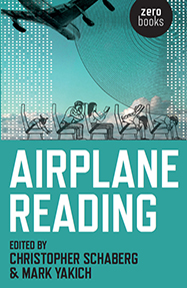Each summer when I was a child, my sister and I would fly 3,000 miles across the country to visit a place my mother was trying to forget. We drove from our home in New Hampshire to fly out of Boston's Logan Airport, stopping midway to change planes, then landing at our destination about nine hours after we began. At Portland International Airport, my sister and I were welcomed by the family we had left behind when we were four and six. Sometimes cousins, aunts, and uncles would be there to greet us, and always our grandparents and birthfather were present. Each person waiting behind the gate wore the face of happiness and reunion, while my sister and I struggled with our bags and the sensation of a distance too quickly spanned.
With the speed of the airplane, our bisected world merged. Boundaries turned foggy and dissolved. The split halves collided and emitted sparks. New Hampshire didn’t seem to belong in Oregon. Oregon didn’t belong in New Hampshire. Where, I wondered, did I belong?
A year could not be condensed into two weeks, I soon came to realize. Birthdays and holidays were celebrated with absences. The void greater on the East Coast, than on the West, for we were only two. Life, I saw in the milestones of my cousins, went on without me and my sister. At home in New Hampshire, my sister and I struggled to navigate our way into a new family of step-cousins, aunts, uncles, and grandparents, and when we returned to Oregon, we tried to reclaim a space that seemed to get smaller every summer.
It confused me to return each year to the state of my birth. When I felt happiness swimming with my cousins and eating my grandmother’s dried apples while the sun evaporated the water from our bathing suits, I also felt guilt. Should I still love these people my mother no longer spoke to? Where did I fit in this place she refused revisit?
Often, the only thing that made sense to me was the weightlessness of the flights. In the air my anxiety would dissolve and I would marvel at the capacity of the clouds to absorb the body of the plane without protest, and the way the earth below patched itself together like a bedspread. Like my grandmother’s afghan.
In the air I belonged to no one. I was, in essence, free. When the pilot turned off the seatbelt sign I roamed about the cabin in search of the tiny bathrooms, where I would sequester myself inside the humming walls and marvel at the force of the toilet, then wash my hands in the doll-sized sink.
Back at my seat, my sister would be waiting for me, ready to play another game of “spit,” with our slippery new deck of cards. Although younger, I liked to fancy myself the braver sister. Certainly I was the only one who dared to eat everything on the meal tray the stewardess would kindly set down on our waiting tables.
It was during a flight to Oregon, when I was nine, that had my first taste of meat. The stewardess had just served me and my sister our trays, each a complete country breakfast of scrambled eggs, sausage and toast (no one had told her we were vegetarians). My sister, immediately alarmed by the links of pork nestled beside our eggs, warned me not to touch the glistening meat. But, she also made the mistake of going to the bathroom before our breakfasts were finished.
While my sister was in the lavatory, I stared hard at those brown steaming links. And the smell, well, it was too much to bare. My stomach grumbled its plea, and my mouth dripped with moisture. More than anything else at that moment, I wanted those sausages. By the time my sister had returned, not only were mine gone, but hers had disappeared as well into my satisfied stomach. My sister, when she saw the missing links from our trays, turned to me in horror.
“You ate the sausages!” she cried out in alarm, as though I had just picked and consumed not one, but four, poisonous mushrooms. In a way, I suppose, I had.
“Mom and Dad are going to kill you!”
“I don’t care,” I replied. “They were delicious!”
Ridden by guilt, my sister confessed my sin two weeks later. She held the secret of my crime just until we made it through the arrival gates and into the arms of our waiting mother and stepfather. Instead of the cries of alarm she had anticipated though, our parents erupted into laughter.
“How’d they taste,” my stepfather asked me with a wink of his eye.
Alethea Kehas is a writer and poet living in New Hampshire with her husband, two children, two cats, two dogs and a fish named Midnight. She balances her life by walking among the trees, meditating and practicing tai chi and yoga.






